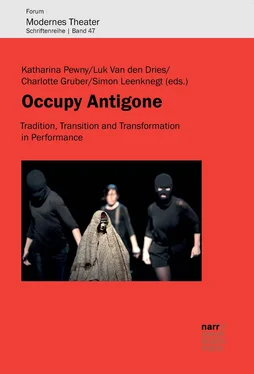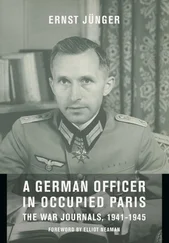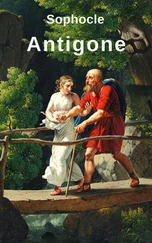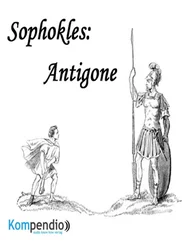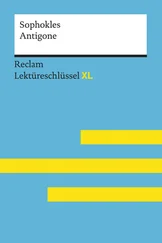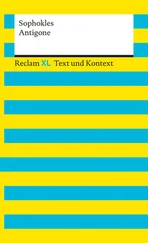There is especially in Africa a continuing trend of theatrical, postcolonial deconstructions of the classic that is a part of Western heritage. This might partly have to do with the renowned drama The Island(South Africa, 1973) by Athol Fugard, John Kani and Winston Ntshona, in which two prisoners of the apartheid era prison Robben Island prepare to perform Antigonefor the other prisoners. Two more recent African plays have gained a similar level of popularity, namely Òsófisan’s Tègònniand Koffi Kwahulé’s Bintou(France, 1997). But also in Europe and the United States the amount of Antigoneperformances in recent years is strikingly high. Some productions even travel to different continents, often actualizing the tragedy by building it up around recent political issues. In 2012, Volker Lösch, known for his controversial choruses for which he often uses amateurs from specific, marginalized groups, presented his Antigona Orientalin Uruguay. In this performance, he worked with Uruguayan women that were victims of political persecution and imprisonment during the military dictatorship in the 1970s. Flemish director Ivo van Hove, who works across Europe and the United States, chose, on the contrary, a deliberately unspecific setting, starring Oscar-winning French actress Juliette Binoche as Antigone and using a new translation by T.S. Eliot Prize winning poet Anne Carson ( Antigone, UK, 2014). Besides the slightly grimmer translation she did for Van Hove,22 Carson published together with Bianca Stone a wonderfully crafted (hand-lettered and illustrated), witty book entitled Antigonickin 2012.23 In California, theatre company Shotgun Players made a very dedicated effort to bring the aesthetics of the book to the stage ( Antigonick, USA, 2015). At Paris-Sorbonne University, as part of the Theater, Performance, Philosophyconference in 2014, Ben Hjorth organized a performative public reading with Judith Butler as Kreon: a public proof of the intense link between academia, new translations of classic texts and innovative performance practice. Roy Williams’s Antigone: a play for today’s streetsis another exciting, inventive adaptation. Translated in gang-slang, the tragedy was first performed by Pilot Theatre in the United Kingdom in 2014. Another example worth mentioning is Dutch dramatist Lot Vekemans’s monologue of Ismene entitled Zus Van(“Sister of”), which received many lauding reviews.24 It was produced in Belgium and the Netherlands by Allan Zipson (2005–2013) as well as in the Deutsches Theater in Berlin, directed by Stephan Kimmig in 2014 during the annual Autorentheatertage. Previously, Kimmig was the director of Ödipus Stadt, a performance that combines Sophocles’ Antigoneand Oedipus the Kingwith Aeschylus’ Seven against Thebesand Euripides’ The Phoenician Women(also at Deutsches Theater, 2012). This performance was, among other cities, invited to Prague, Santiago de Chile and Beijing. Among the other performances that combine Antigonewith other tragedies are kReonby Jorgen Cassier (Belgium, 2009), Ödipus/Antigoneby Michael Thalheimer (Germany, 2009) and These Seven Sicknessesby Sean Graney (USA, 2012). The list can be extended almost endlessly and gives us only a peek at the prominence of Antigone on contemporary stages. The limited amount of publications that actually consider performance practice reveals that research on contemporary performances of Antigoneare still at the very beginning in both theatre and performance studies. The title of the conference and this resulting anthology Occupy Antigonerefers to the amount of projects, publications and people occupiedwith Antigone. ‘Occupation’ is of course a term that strongly echoes political force. Especially in postcolonial discourses, histories of occupation are addressed as being related to violence and oppression. Occupation, however, and this is particularly true for the global counteractions of the Occupy Movement, can also refer to bottom-up approaches to resistance and empowerment. Occupation can then be understood as an act of seizing a certain object, usurping it, collectively using it in a different way and thereby giving new meaning to it. The contributions collected in this volume emphasize the political impact of performance practice and academic writing with regard to present sociopolitical realities. Three key sections form the structure of this collection: “Antigone’s Transformed Heritage”, “Antigone’s Mechanisms of Exclusion and Resistance” and “Antigone’s Scenes of Death”. In the first section questions are raised such as: what were the links between philosophy, art and performance and the figure of Antigone in the past? What is the state of these relations today? Within which philosophical frameworks do we encounter Antigone today? What is the tragic element in these frameworks? Are there connections between changes in how the tragic is conceptualized and changes in how Antigone is interpreted? Freddie Rokem, author of Performing Historyand Philosophers and Thespians: Thinking Performanceand also one of the driving forces behind the research network Performance Philosophy, opens the first section. Referring to Aristotle, Rokem postulates that in tragedy, principles from basic formal logic are central to critically approaching the philosophical question of what it means to be human. Claiming that “one of the distinguishing features of tragedy is that it both integrates and at the same time confronts and subverts the classical forms of logical argumentation” (p. 17), his paper is a unique example of the fertile exchange between performance practice, philosophy and classic propositional logic. He then performs a careful reading of the famous “Ode to Man”, with regard to the different translations and interpretations of deinonand their respective contexts, from Sophocles’ original and Hölderlin’s translation to Heidegger’s reading and Brecht’s production The Antigone of Sophocles; A version for the stage after Hölderlin’s translation. Rokem provides a particularly complex reflection on the manifold meanings of the term, the philosophical questions it touches upon and how this has had an impact on both philosophical writing and performance practice throughout the centuries. Kati Röttger dives even deeper into the history of philosophy, seeking the traces Antigone has left in this field. In her contribution “Occupying Scenes of Thinking: The Case of Antigone”, she detects subtle differences between approaches to the figure of Antigone and scrutinizes them against their historical backgrounds, unravelling an “interrelation between the law of tragedy and the tragedy of law” (p. 36). This is the point of departure to reveal the commonalities “between philosophical and theatrical thinking” (p. 36), which she finds to be strikingly present in Antigone. Focusing on the significance of the notion of poiesisand agon,she contrasts dialogues between Heidegger and Hölderlin with dialogues between Derrida and Heidegger, while also taking relevant remarks by Walter Benjamin, Lacoue-Labarthe and others into consideration. Röttger stresses that the remarkable kinship between theatre and philosophy “is founded on dialogue” (p. 38) and can be seen as a matter closely related to dramaturgy. In “Against the Unwritten Laws. The Figure of Antigone and the Political Occupation of the Public Space”, Klaas Tindemans deals with a more concrete mode of the abstract concept of law and the politics of undermining them. Engaging with Hannah Arendt’s ideas on the construction of a democratic political realm and studies by contemporary thinkers such as Cecilia Sjöholm, Bonnie Honig, Florence Dupont and Cornelius Castoriadis, he moves between historical analysis and contemporary philosophical ideas to reflect on public space as political space. He connects examples from film and theatre productions with their political realities – particularly the aftermath of the ‘German autumn’ in the 1970s – to tackle the problem that while “[a] public, political space needs written laws in order to frame itself, […] it of course also needs an Antigone to occupy it” (p.
Читать дальше
